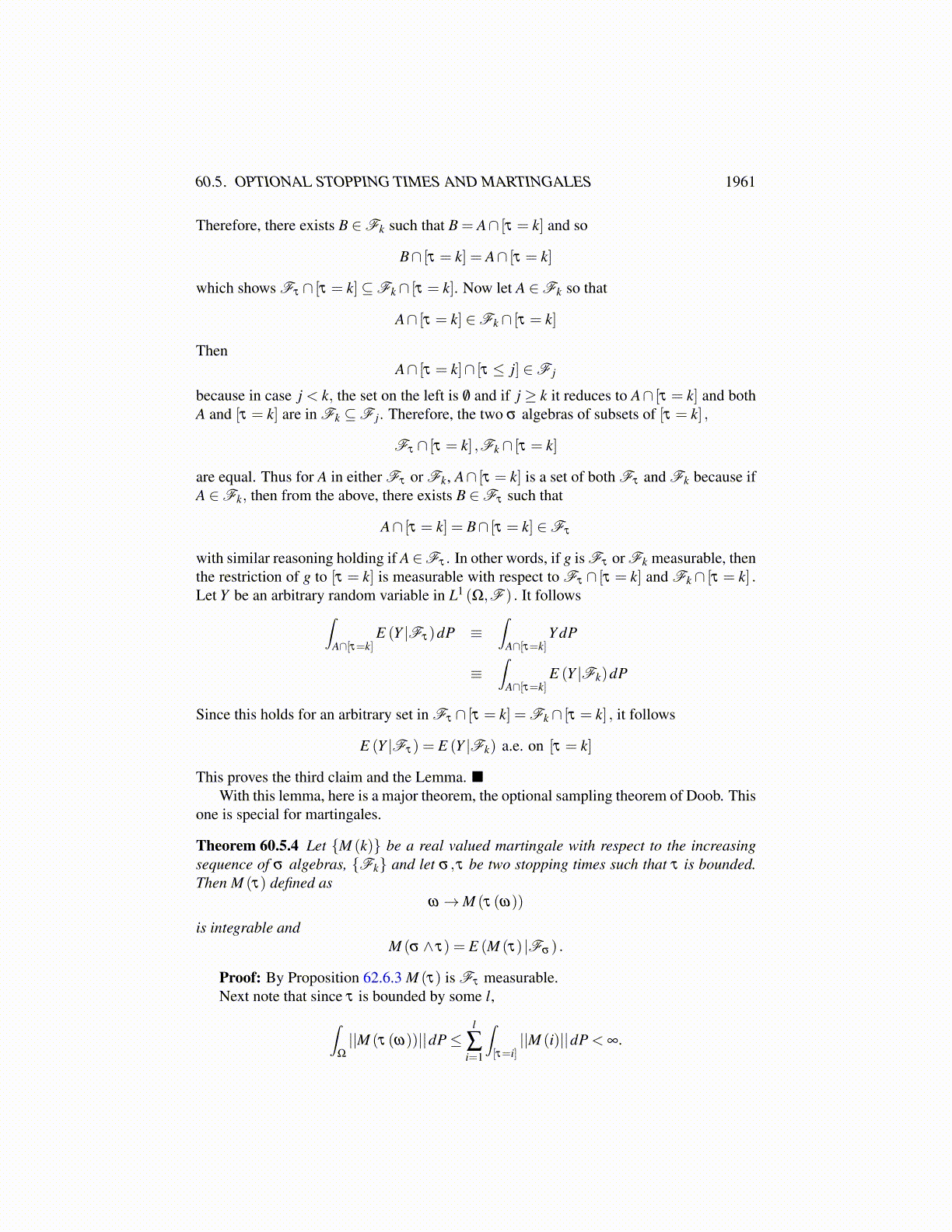
60.5. OPTIONAL STOPPING TIMES AND MARTINGALES 1961
The left side equals∪n (An∩ [τ ≤ k])
which is a countable union of sets of Fk and so Fτ is closed with respect to countableunions. Next suppose A ∈Fτ .(
AC ∩ [τ ≤ k])∪ (A∩ [τ ≤ k]) = Ω∩ [τ ≤ k]
and Ω∩ [τ ≤ k] ∈Fk. Therefore, so is AC ∩ [τ ≤ k] . It remains to verify the last claim. Itsuffices to verify that [Y (τ)≤ a] ∈Fτ . Is [Y (τ)≤ a]∩ [τ ≤ l] ∈Fl?
[Y (τ)≤ a] = ∪k [τ = k]∩ [Y (k)≤ a]
Thus[Y (τ)≤ a]∩ [τ ≤ l] = ∪k [τ = k]∩ [Y (k)≤ a]∩ [τ ≤ l]
Consider a term in the union. If l ≥ k the term reduces to [τ = k]∩ [Y (k)≤ a] ∈Fk whileif l < k, this term reduces to /0, also a set of Fk. Therefore, Y (τ) must be Fτ measurable.This proves the proposition.
The following lemma contains the fundamental properties of stopping times.
Lemma 60.5.3 In the situation of Definition 60.5.1, let σ ,τ be two stopping times. Then
1. τ is Fτ measurable
2. Fσ ∩ [σ ≤ τ]⊆Fσ∧τ = Fσ ∩Fτ
3. Fτ =Fk on [τ = k] for all k. That is if A∈Fk, then A∩ [τ = k]∈Fτ and if A∈Fτ ,then A∩ [τ = k] ∈Fk. Also if A ∈Fτ ,∫
A∩[τ=k]E (Y |Fτ)dP =
∫A∩[τ=k]
E (Y |Fk)dP
andE (Y |Fτ) = E (Y |Fk) a.e.
on [τ = k].
Proof: Consider the first claim. I need to show that [τ ≤ a]∩ [τ ≤ k] ∈Fk for every k.However, this is easy if a≥ k because the left side is then [τ ≤ k] which is given to be in Fksince τ is a stopping time. If a < k, it is also easy because then the left side is [τ ≤ a]∈F[a]where [a] is the greatest integer less than or equal to a.
Next consider the second claim. Let A ∈Fσ . I want to show first that
A∩ [σ ≤ τ] ∈Fτ (60.5.10)
In other words, I want to show
A∩ [σ ≤ τ]∩ [τ ≤ k] ∈Fk